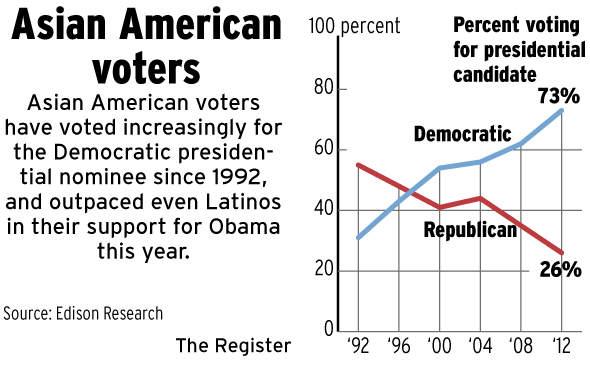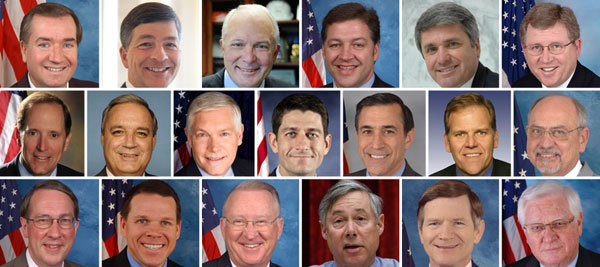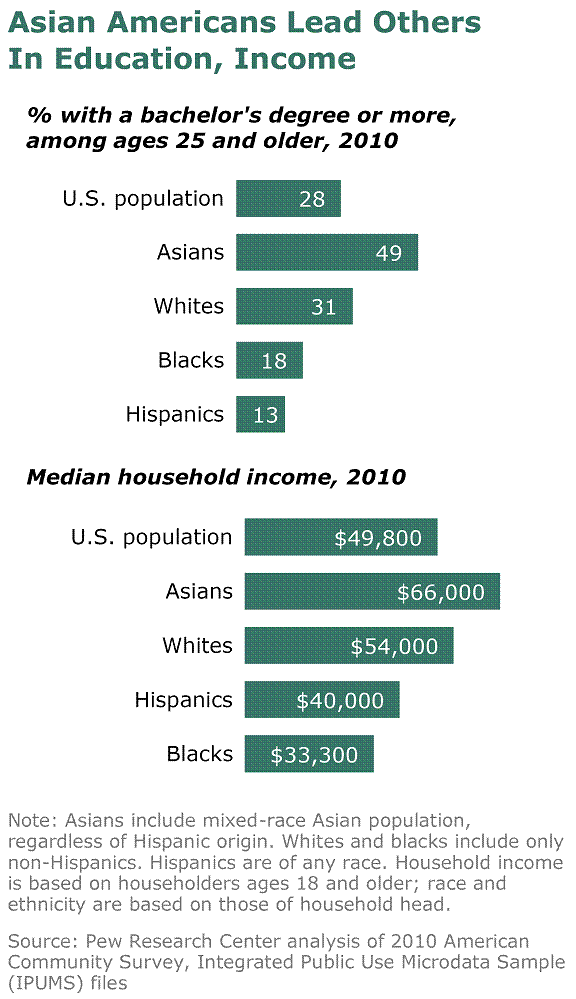Noahpinion asks: “[W]hy did Asian-Americans break so strongly for Obama? I provide my (slightly different) answer.
As Noahpinion observes, given Asian American’s higher than average income, the Romney-esque argument that the group is one of “takers” not “makers” cannot be correct (of course, there is little empirical content to this particular thesis, anyway). 2012 was not an isolated event, by the way.

Source: Orange County Register.
I am not a political scientist, and so am not particularly well-qualified to provide a proper quantitative analysis. But I can at least relay some thoughts based upon my own experiences on why some Chinese-Americans of a certain background might not feel comfortable with the Republican party. First, consider the composition of the party leadership, as represented by the new House Committee Chairmen:

Source: DailyKos.
Of course, it’s the policies that matter more. And here, I think the key factor of importance to Chinese-Americans is pragmatism (the generation of my parents — who came from China — saw enough rigid, dogmatic ideology run amok, thank you very much), and a belief in progress by way of science and technology. In this vein, Richard Posner speculates that Asian-Americans lean toward the Democratic party, despite the low-tax rate stance of the Republican party, because:
… being well educated as a group, Asian Americans may be disturbed by the hostility to science, particularly evolutionary biology, which Republican supporters and politicians have exhibited of late.
Charles Murray tries to explain Asian-American voting as pure mis-apprehension, to wit:
…Republicans are seen by Asians—as they are by Latinos, blacks, and some large proportion of whites—as the party of Bible-thumping, anti-gay, anti-abortion creationists. Factually, that’s ludicrously inaccurate.
I’ll let readers decide if that characterization is so ludicrous. In any case, data on comparative education and income in shown below.

Source: Pew Research Center
In other words, for the Republican party to make inroads into the Asian-American voting bloc (which split 73-26 in favor of Obama), they will need to do more than make some vague noises about greater ethnic inclusion. They will need to think more deeply about whether the age of the earth is closer to 4000 or 4 billion years, whether females can negate unwanted pregnancies merely by willing it, and whether statistical theory and/or the central limit theorem is bunk.
On a personal note, I would add that ads like this do not endear the Republicans to Chinese-Americans (and I suspect to other Asian-Americans). I am uncertain, however, that an ever more ethnically and geographically concentrated Republican party will be able to resist resorting to such appeals in the future.



Leave a Reply